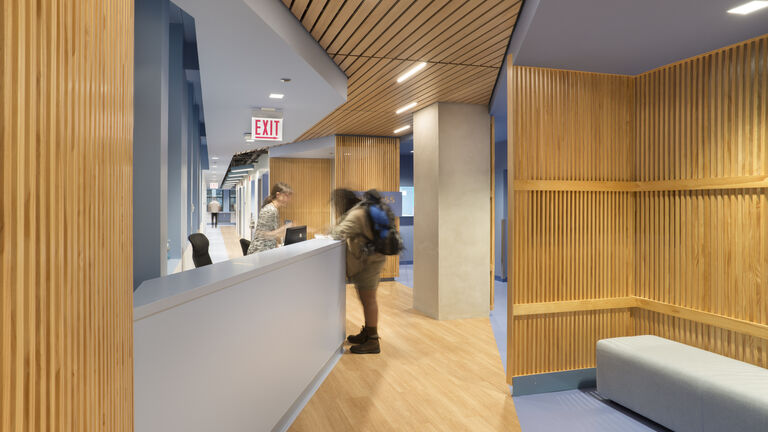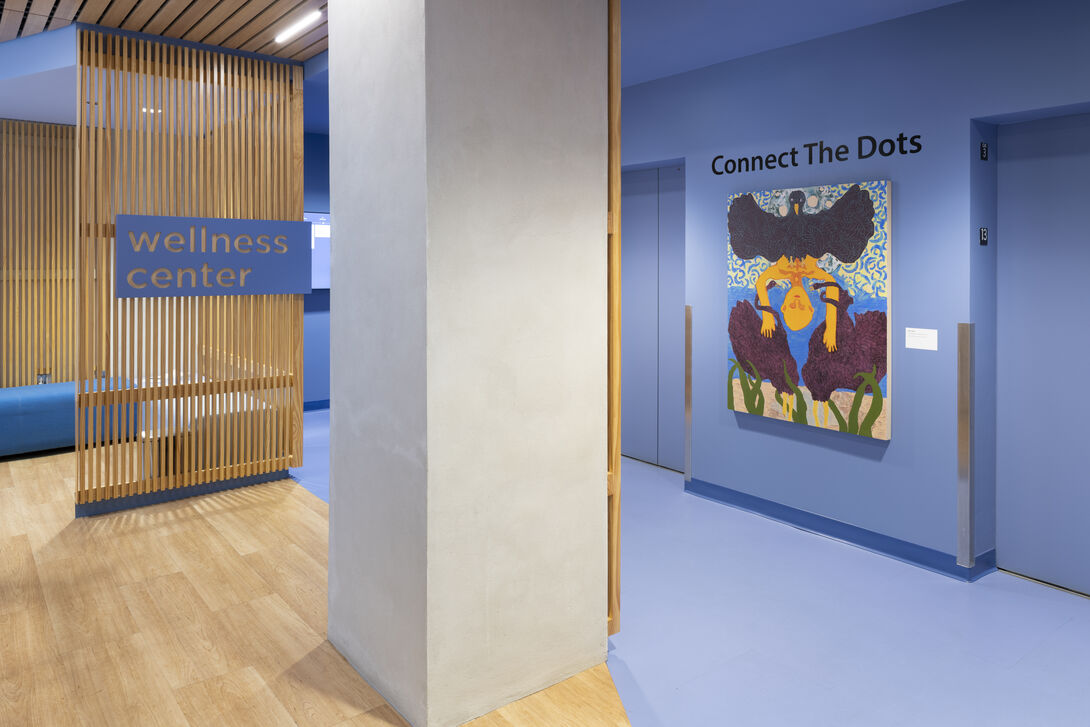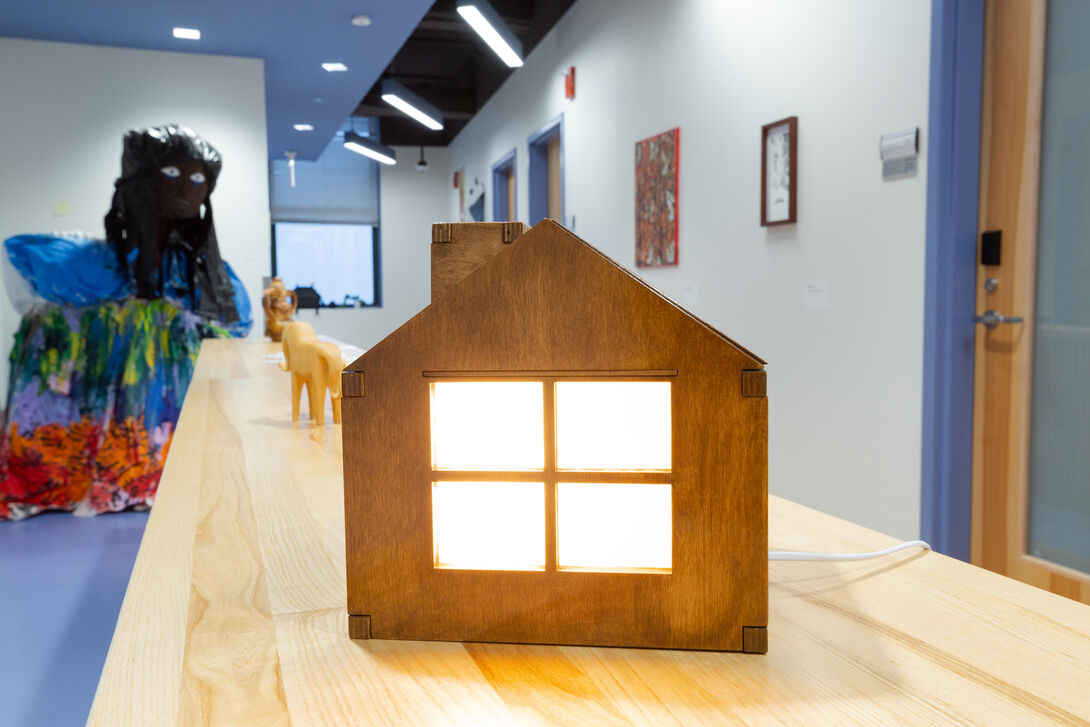
SAIC Receives Second Major Grant to Advance Suicide Prevention and Mental Health Initiatives
The Center for Collegiate Mental Health’s latest annual report makes it clear: college students’ needs for mental health support are higher than ever. From the lingering effects of the pandemic to the political landscape of the world, the life of a modern college student is full of modern stressors—but thanks to a new grant secured by the Wellness Center, the School of the Art Institute of Chicago (SAIC) will be even better equipped to support students’ mental health.
The School recently received its second Garrett Lee Smith Campus Suicide Prevention Grant of $360,000 from the Substance Abuse and Mental Health Services Administration (SAMHSA) for the 2022–25 period. This current grant helps increase the School’s capacity to meet the demand for clinical services, address the mental health needs of international students, and provide educational programming and peer support, among others.

The Wellness Center secured the School’s first Campus Suicide Prevention Grant in 2011, launching SAIC Cares, a three-year initiative that established SAIC’s suicide prevention infrastructure. Each year, around two-thirds of SAIC’s student body use the Wellness Center’s comprehensive health, counseling, and disability support services, and the School is continually evolving its mental health and suicide prevention infrastructure to meet changing needs.
The current grant, Making Lives Better Together, establishes a new position of triage counselor, filled by Alaynah Chatman LSW. This mental health professional works with students in the early stages of a mental health crisis, guiding anyone in need of resources within or beyond the School. Adding the new position has enhanced SAIC's counseling program, providing each student with up to 16 professional therapy sessions with the School’s highly qualified staff. This builds on the groundwork of the previous grant, which funded a mental health promotion specialist/art therapist, a role filled by alum Julia Daniel (MA 2023).
“As an alum, it is exciting to see and be a part of all the various ways the Wellness Center strives to support student's mental wellness,” said Daniel. “Without the Garrett Lee Smith grant and subsequent partnerships such as Mental Health First Aid and the Student Support Network, the care we are able to provide SAIC students would not be as robust.”
In addition to counseling services, the Wellness Center offers healthcare services as well as support and advocacy through its Disability and Learning Resource Center—providing empathic, compassionate, comprehensive care for the whole student.

With the help of the new grant, SAIC has also expanded its Mental Health First Aid Training, an eight-hour program on psychiatric crisis support. More than 1,200 people received this training on campus from 2011 to 2020, and the numbers keep growing. The success of the training program inspired the formation of the Wellness Center Student Support Network, a platform for students to discuss mental health and plan relevant campus programming.
At SAIC, international students make up a third of the student body, and tele-health opportunities can connect international students with clinicians fluent in their native language. SAIC has also partnered with organizations like Thriving Campus, Together All, and Telus Health Student Support to provide students with off-campus health clinicians, online peer-to-peer mental health support, and confidential real-time chat and phone support.
Of course, at SAIC, it all comes back to art. The Wellness Center also stages exhibitions, which enhance students' understanding of how to deal with mental health crises and where to seek help. The current show on display at the Wellness Center, We Are Our Own Healers; We Are Our Own Medicine, brings together a cohort of artists passionate about artwork inspired by healing practices.
